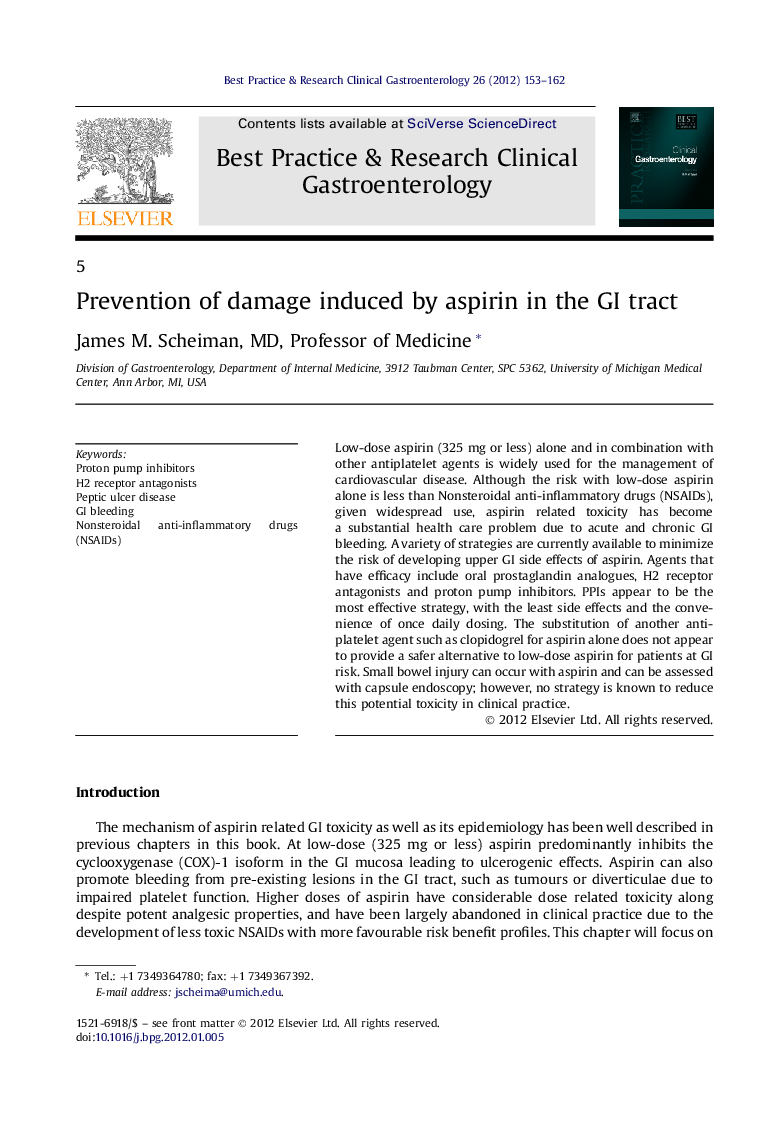| Article ID | Journal | Published Year | Pages | File Type |
|---|---|---|---|---|
| 3254647 | Best Practice & Research Clinical Gastroenterology | 2012 | 10 Pages |
Low-dose aspirin (325 mg or less) alone and in combination with other antiplatelet agents is widely used for the management of cardiovascular disease. Although the risk with low-dose aspirin alone is less than Nonsteroidal anti-inflammatory drugs (NSAIDs), given widespread use, aspirin related toxicity has become a substantial health care problem due to acute and chronic GI bleeding. A variety of strategies are currently available to minimize the risk of developing upper GI side effects of aspirin. Agents that have efficacy include oral prostaglandin analogues, H2 receptor antagonists and proton pump inhibitors. PPIs appear to be the most effective strategy, with the least side effects and the convenience of once daily dosing. The substitution of another antiplatelet agent such as clopidogrel for aspirin alone does not appear to provide a safer alternative to low-dose aspirin for patients at GI risk. Small bowel injury can occur with aspirin and can be assessed with capsule endoscopy; however, no strategy is known to reduce this potential toxicity in clinical practice.
